Mesothelioma Cancer: Slow & Silent Killer Disease

What is Mesothelioma?
Mesothelioma is deadly cancer related to asbestos and it is caused by inhaling asbestos fibres and affects the lining of the lungs, abdomen and heart. After diagnosis, the average life expectancy for most mesothelioma patients is approximately 12 – 21 months after the examination. Medication can involve surgery, chemotherapy or radiation. Mesothelioma medications are available, but many people who are suffering from mesothelioma, a cure isn’t possible.
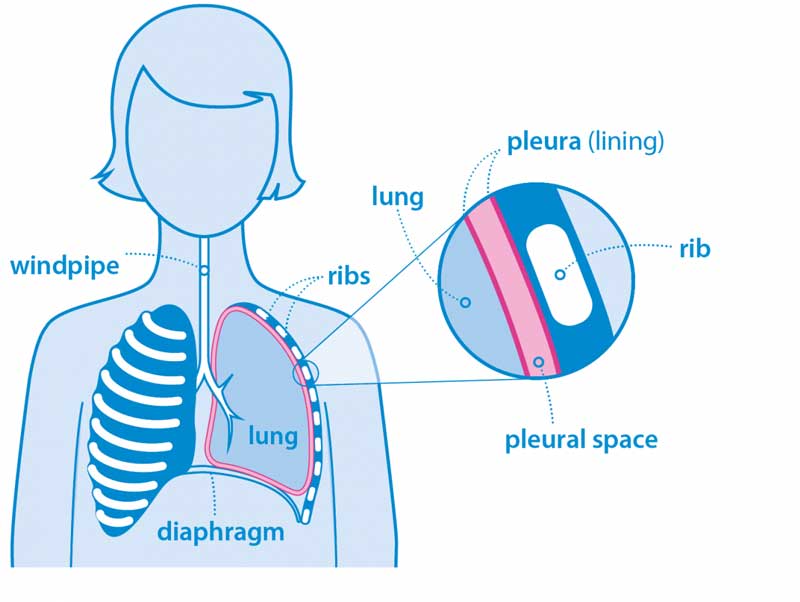
Types of Mesothelioma
From which type of mesothelioma cancer you are suffering is identified by the location of the tumour developed in your body. Mesothelioma is categorised into 4 types. Remember causes, symptoms and treatment options vary for each type of mesothelioma.
1. Pleural Mesothelioma:
The tumour that affects the tissue surrounding the linings of the lungs then this type of mesothelioma is known as called pleural mesothelioma. Symptoms may include:
- Chest pain
- Painful coughing
- Shortness of breath
- Unusual lumps of tissue under the skin on your chest
- Unexplained weight loss
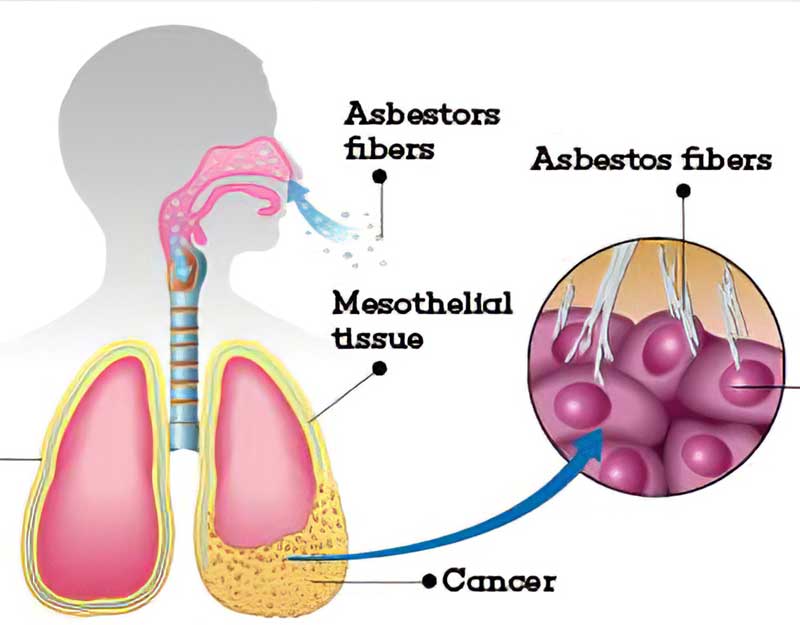
Approximately 80 – 90% of all diagnosed cases of mesothelioma are pleural. These symptoms are sometimes correlated with other diseases, such as lung cancer. Normally pleural mesothelioma patients survive 6 – 12 months after diagnosis.
2. Peritoneal Mesothelioma:
This type of mesothelioma occurs in the tissues of the abdomen, signs and symptoms may include:
- Abdominal pain
- Nausea
- Fluid in the abdomen
- Abdominal swelling
- Sudden weight loss
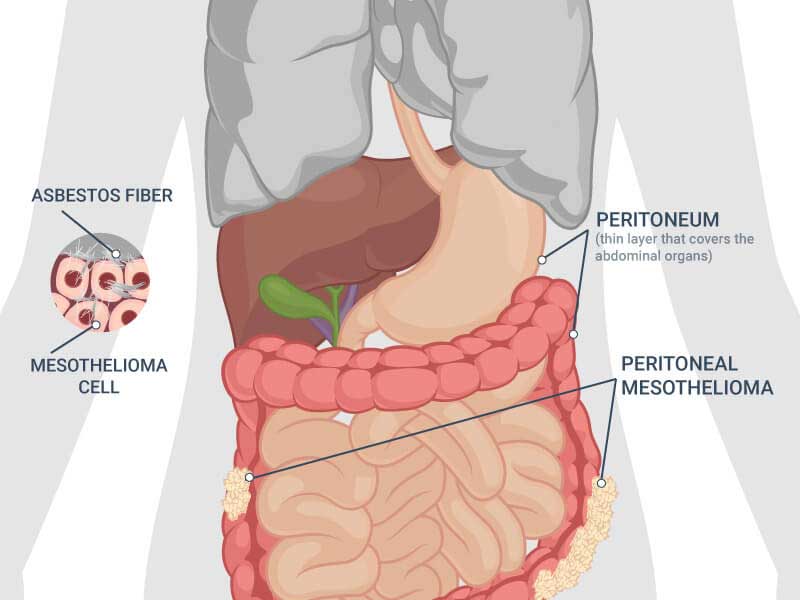
15 -20 % cases of Peritoneal mesothelioma found and it is the second-most common type of cancer. This type of mesothelioma affects the lining of the abdominal cavity.
Due to advancements in treatments, peritoneal mesothelioma patients have a more life expectancy than types of mesothelioma. Most of the time the surgery of peritoneal mesothelioma is combined with hyperthermic intraperitoneal chemotherapy which decreases the risk factor and increases the life expectancy of most of the patients by 50% and they live for five years or more. Patients of peritoneal mesothelioma have a one-year survival rate of 92%, despite their treatment.
3. Pericardial Mesothelioma:
This type of mesothelioma affects the tissue that surrounds the heart or tumours form in the lining of the heart. This cancer is very rare and about 1% of the total number of mesothelioma cases.
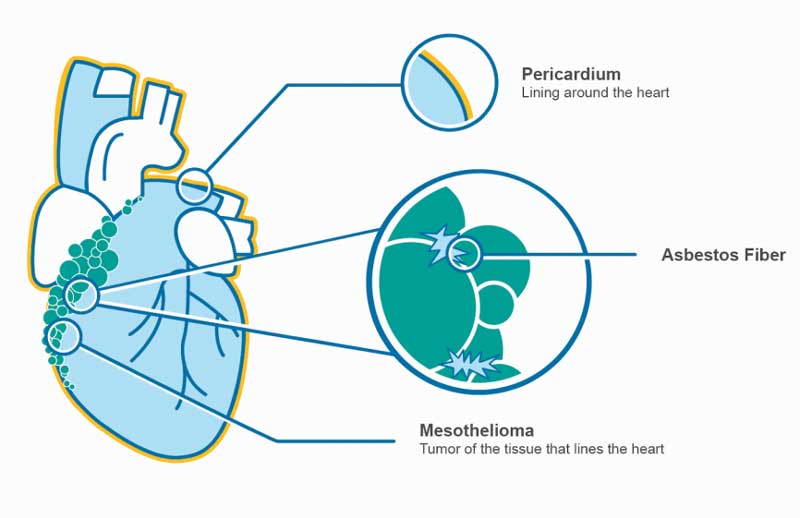
Symptoms of Pericardial mesothelioma include:
- Irregular heartbeat
- Chest pain
- Development of fluid
Due to the vicinity of tumour in the heart, patients may experience severe symptoms during the early stages of pericardial mesothelioma. Patients may sustain six months on average, with a one-year survival rate of 51%.
4. Testicular Mesothelioma:
Testicular mesothelioma is diagnosed in less than 1% of all cases. This type of cancer develops in the lining of the testicles and presents with the following symptoms:
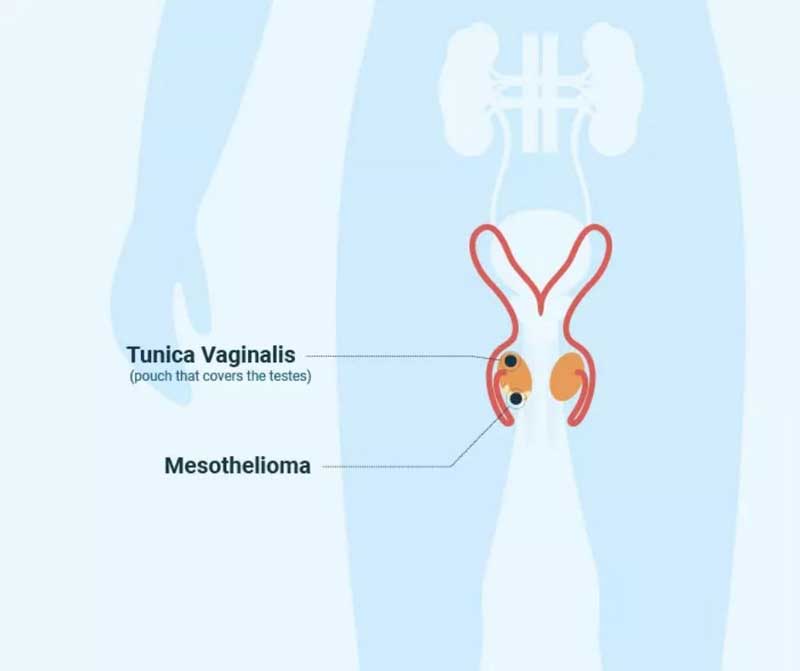
- A mass on the testicle
- Testicular pain
- Swelling in scrotal caused by the development of fluid.
The prognosis for testicular mesothelioma patients is two years on an average. However, it has a high rate of recurrence. Almost 93% of patients experience reoccurring cancer within five years of their initial diagnosis.
Also Read: Most Common Cancers Types Found In India
Cause of Mesothelioma
Mesothelioma is caused by inhaling asbestos fibres or after the person is exposed to asbestos fibres. These microscopic fibres can get stuck in the lining of the lungs and abdomen, making harm to the cells and eventually leads to mesothelioma. In general, cancer begins when a series of variations happen in DNA cell. The variations tell the cell to grow and multiply out of control. The abnormal cells expand and form a tumour in lung, abdomen, heart and other parts.
Still, it is not clear that what causes the initial genetic changes in the body that give rises to mesothelioma, though researchers have shown in their reports about various factors that may increase the risk of mesothelioma. Various factors and your interaction with surrounding that cause cancer such as inherited conditions, your environment, your health conditions and your lifestyle choices.
After 10-20year from initial exposure, healthy cells changes and become cancerous. These cells grow and multiply in the thin layer of cells lining the outside of internal organs. The location of the tumours is the primary method used to determine the type of mesothelioma.
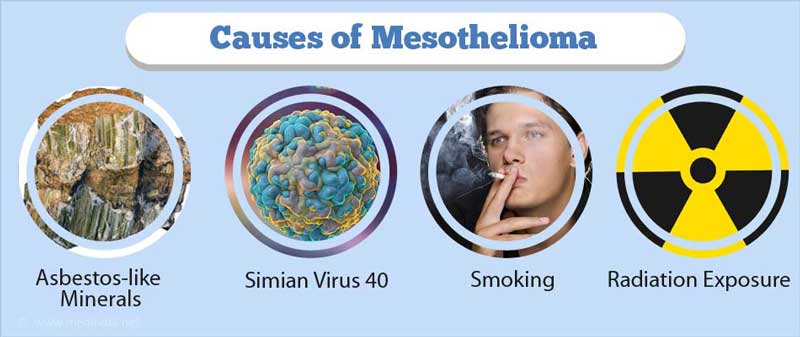
Risk Factors of mesothelioma include:
- Personal history of asbestos exposure. If you’ve been directly exposed to asbestos fibres at work or at home, your risk of mesothelioma is greatly increased.
- People living with someone who is working with asbestos. They are exposed to asbestos and may carry the fibres home on their skin and clothing.
- A family history of mesothelioma. If parent, sibling or child has mesothelioma, they may have an increased risk of this disease.
If you had radiation therapy for cancer in your chest, you might have an increased risk of mesothelioma.
Common Symptoms of Mesothelioma
Symptoms of mesothelioma arise when tumours spread, grow and press against the chest wall and the abdominal cavity. Chest pain and shortness of breath are the most common symptoms. Other symptoms of mesothelioma include:
- Dry coughing
- Development of Respiratory problems
- Weakness in the muscles
- Pain in abdomen & chest
- Fatigue
- Fever or your body sweats in the night
- Fluid found around the lungs
Also Read: Everything You Should Know About Novel Coronavirus- China
What you should do when mesothelioma symptoms arise?
If patients experience any common symptoms of cancerous mesothelioma, they should immediately consult the doctor and seek medical benefits to increase life expectancy.
Mesothelioma cancer is treated with conventional therapies such as surgery, chemotherapy and radiation. But not every patient is eligible for each type of mesothelioma treatment.









